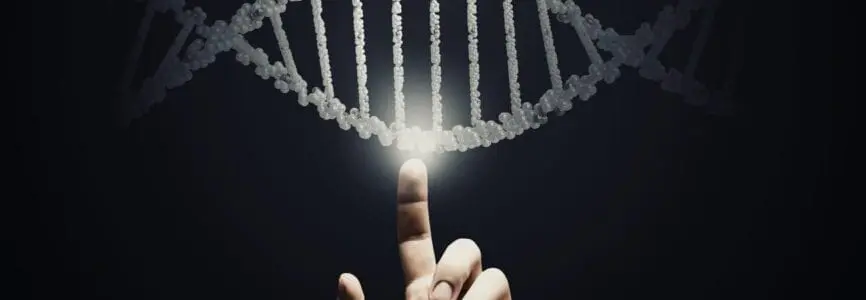News in Contect
Should Scientists Create a Synthetic Human Genome?
On June 2, a group of leading scientists announced their intention to build an entire human genome from scratch. While the fabricated genome would be inserted into cells in a laboratory dish, the research initiative has generated controversy because it “could theoretically allow the creation of babies without biological parents.” Shortly after the announcement, Hastings Center scholars Josephine Johnston and Gregory Kaebnick participated in two different panel discussions at the World Science Festival in New York in which the ethical and societal implications were debated.
What is it?
Constructing a human genome is one of the main goals of Human Genome Project-Write, a 10-year international project that the scientists want to launch this year. It would engineer, or “write,” an entire genome – all the heritable traits – of humans, as well as of other animals and plants that are significant for agriculture or public health or for furthering the understanding human biology. Potential applications include growing human organs for transplantation and genetically engineering immunity to viruses and resistance to cancer. The primary goal is to reduce the costs of genomic engineering and testing “by over 1000-fold within 10 years” and “push current conceptual and technical limits by orders of magnitude and deliver important scientific advances.” The scientists have raised $250,000 and are trying to raise $100 million this year from public, private, philanthropic, industry, and academic sources around the world.
News in Context
Scientists involved with the project say that they do not intend to create synthetic babies or engineer the human race (see here and here), but they recognize that it raises ethical and social concerns. Their announcement calls for public discourse to ensure responsible innovation, including equitable distribution of benefits globally. “Before I could say that the project makes sense, I would want to know a lot more about what it was likely to achieve and how much it was likely to cost,” says Kaebnick, who is an investigator on the Hastings Center’s project on gene editing and has led projects on synthetic biology. Even if the initiative would not create human babies, it still leads eventually to questions about the prospects of enhancing human traits on a larger scale than has been possible so far. And that prospect demands public deliberation. “The challenge is to figure out whether the public discussion can be structured in such a way that it has real bite—that it really makes a difference in how we think about the human enhancement questions.”
“The call for funding for a project to “write” genomes raises questions about the adequacy of the United States’ existing governance mechanisms to deal with the implications of this project, were it to succeed in its goals,” says Johnston, a principal investigator on The Hastings Center’s gene editing project and the PI on a project on next-generation prenatal testing. “While the scientists involved may not intend to generate synthetic genomes for reproductive use, others might seek to do so. We should ensure that our regulatory mechanisms are equipped to deal with these possibilities.”

